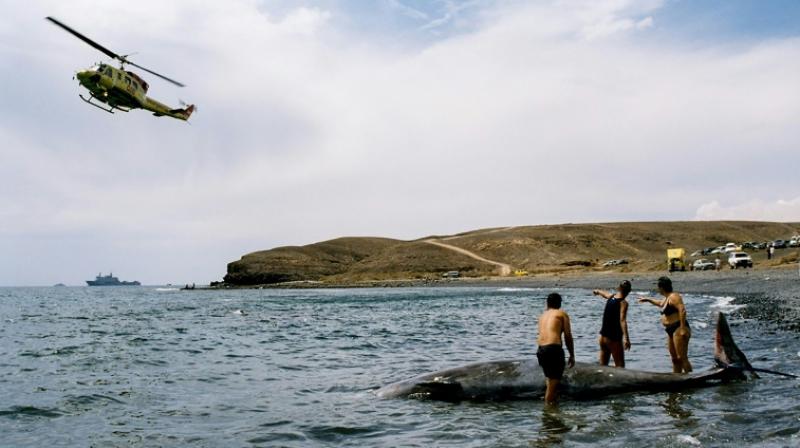Sonar fatal for whales

Scientists have long known that some beaked whales beach themselves and die in agony after exposure to naval sonar, and now they know why – the giant sea mammals suffer decompression sickness, just like scuba divers due to the sonar.
Millions of years of evolution have turned whales into perfectly calibrated diving machines that plunge deep below the surface for hours at a stretch, foraging for food in the inky depths. The heart rate slows, blood flow is restricted and oxygen is conserved.
So how does the ocean’s most accomplished deep-sea diver wind up with nitrogen bubbles poisoning in its veins, like a scuba novice rising too quickly to the surface? Beaked whales, especially one species known as Cuvier's, get really scared.
In the presence of sonar they are stressed and swim vigorously away from the sound source, changing their diving pattern," lead author Yara Bernaldo de Quiros, a researcher at the Institute of Animal Health at the University of Las Palmas de Gran Canaria, Spain, told AFP. "The stress response, in other words, overrides the diving response, which makes the animals accumulate nitrogen," she added. "It's like a adrenalin shot."
One type of sonar in particular throws these whales off balance. The most deadly episode, in 2002, saw 14 whales stranded over a 36-hour period in the Canary Islands during a NATO naval exercise. "Within a few hours of the sonar being deployed, the animals started showing up on the beach," Bernaldo de Quiros said.
Outwardly, the whales showed no signs of disease or damage: they had normal body weight, and no skin lesions or infections. Internally, it was another story. Nitrogen gas bubbles filled the veins, and their brains were ravaged by haemorrhaging. Autopsies also revealed damage to other organs, as well as to the spinal cord and central nervous system.

